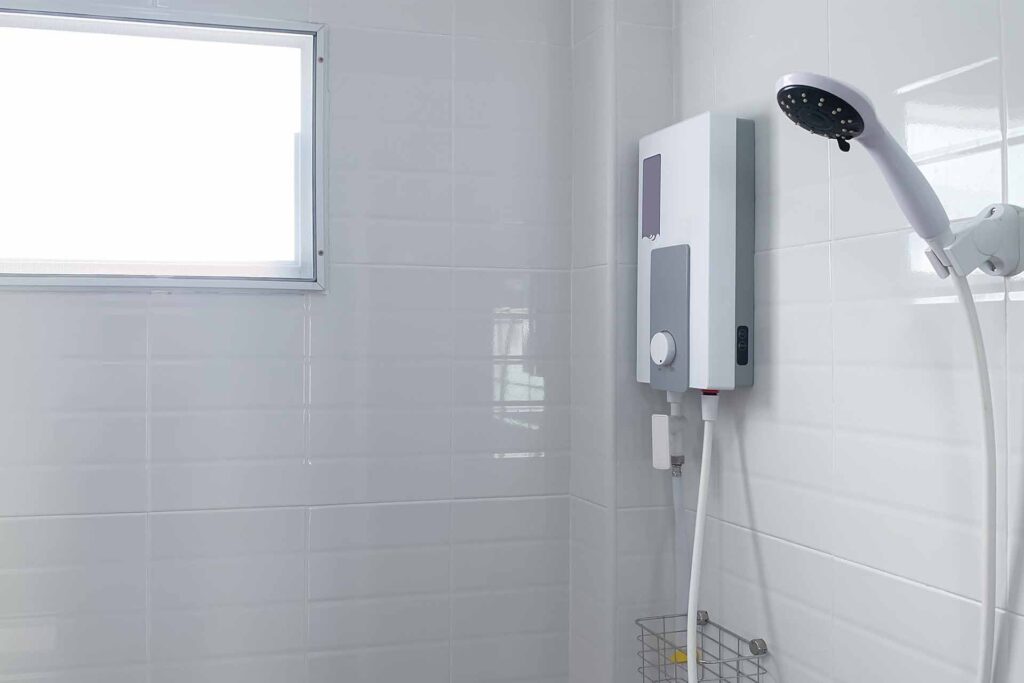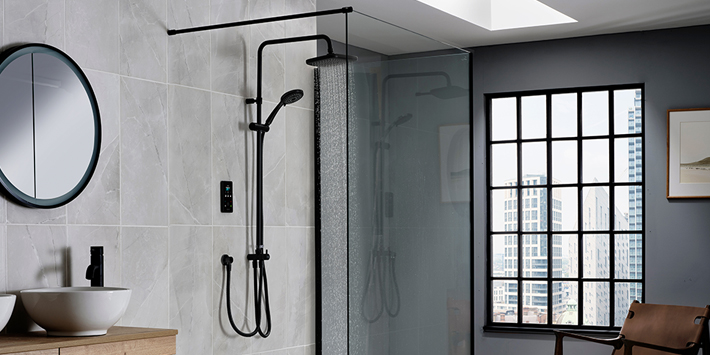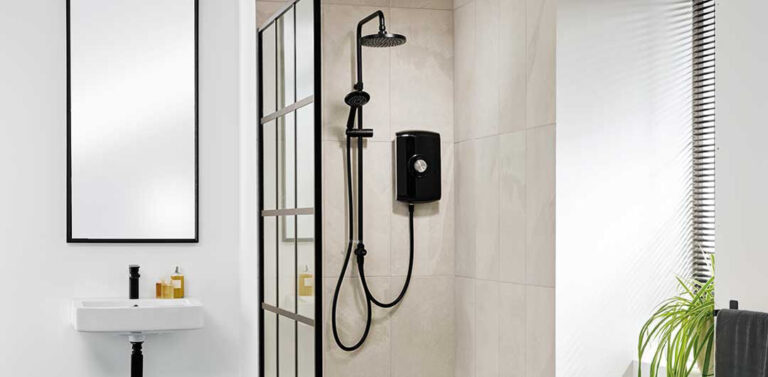If your electric shower is always cold, it might be due to a few reasons. First, check if the heating part is broken. Low water pressure can also cause this. Make sure your power isn’t off by checking the switches. If the shower gets too hot, it can shut off by itself, so let it cool down.
In addition, check the temperature settings, and clean the shower to remove any gunk. A broken thermostat, wire issues, or a factory mistake can also be the cause. To fix it, ask an expert. Always be careful with electricity.
How to identify common causes of cold electric showers?
Cold electric showers can be quite uncomfortable, and there are several common causes for this issue.
Heating Element Issues
The heating element is a crucial component responsible for heating the water in an electric shower. Over time, the element can become faulty, leading to poor or no heating.
Faulty elements often need replacement, which is a common repair for cold showers.
Low Water Pressure

Electric showers require a minimum water pressure to function efficiently. Inadequate water pressure can limit the flow of water through the heating element, resulting in cooler water.
Check for any water supply issues, such as leaks, blockages, or partially closed valves.
Electrical Problems (Circuit Breakers, Fuses
Electric showers are connected to your home’s electrical supply. Tripped circuit breakers or blown fuses can disrupt the power supply to the heating element.
Regularly check the electrical panel for any tripped breakers or blown fuses, and reset or replace them as needed.
Safety Cut-Out Mechanism
Many electric showers have a safety feature that cuts off power if the unit becomes too hot.
This can occur if there’s a problem with the thermostat or if the shower has been running for an extended period. Allowing the shower to cool down can resolve this issue, making it work again.
Temperature Settings
Electric showers have temperature controls that allow you to set the desired heat level.
If someone inadvertently adjusts the control to a very low temperature, it may result in cold water. Ensure the temperature setting is correctly adjusted to your preferred level.
Scaling or Sediment Buildup
Over time, mineral deposits, sediment, or scale can accumulate inside the showerhead and heating element.
This buildup can reduce the efficiency of the heating element, leading to colder water. Regular cleaning and descaling can prevent this issue, improving the shower’s performance.
Faulty Thermostat
The thermostat in the shower regulates the water temperature. A malfunctioning thermostat can inaccurately control the temperature, causing the water to be colder or hotter than desired. Replacing or repairing the thermostat may be necessary to restore proper function.
Wiring Issues
Faulty or damaged electrical wiring connected to the electric shower can disrupt the flow of electricity. Broken or loose wires can prevent the heating element from working correctly.
An electrician can inspect and fix any wiring problems to ensure the shower functions as intended.
Manufacturer Defects
In some cases, a factory defect in the electric shower unit can be the root cause of cold water issues. If the unit is still under warranty, it’s advisable to contact the manufacturer or a professional technician for assistance.
Manufacturer defects are less common but should be considered if other troubleshooting steps do not resolve the problem.
What are the steps for diagnosing electric shower issues?
Diagnosing electric shower issues can be a systematic process that involves checking various components to identify the root cause of the problem.
How to Check the Heating Element
The heating element is inside the electric shower and is responsible for warming the water.
Start by turning off the power to the shower to ensure safety.
Access the heating element, typically located behind a cover or panel. Use a multimeter to check for continuity across the heating element’s terminals. If there is no continuity, the element is likely faulty and needs replacement.
How to Test Water Pressure
Low water pressure can cause inadequate heating in electric showers. To test water pressure, install a pressure gauge on the water supply pipe or hose that feeds the shower.
Compare the pressure reading with the manufacturer’s recommended pressure for the shower. If it’s below the recommended level, you may need to address water supply issues.
Inspecting Electrical Components
Check the circuit breakers or fuses in your home’s electrical panel. If they’ve tripped or blown, reset or replace them.
Examine the wiring connected to the electric shower for any visible damage, loose connections, or corrosion. Ensure that the shower’s power switch and isolator switch (if present) are turned on.
Safety Cut Out Mechanism and Cooldown
If the shower has a safety cutout mechanism that activates due to overheating, allow the shower to cool down for a while. This can be anywhere from a few minutes to an hour, depending on the shower model.
After cooling down, the shower may start working again, indicating that the safety feature was the cause of the cold water.
Adjusting Temperature Setting
Verify the temperature control settings on the electric shower. Make sure it is correctly adjusted to your desired temperature. Someone might have accidentally turned it down.
Adjust the control to a higher temperature if needed and see if the water warms up.
Cleaning or Descaling

If scaling or sediment buildup is suspected, you can address this issue by cleaning or descaling the shower. Remove the showerhead and heating element, if possible, and soak them in a descaling solution to remove mineral deposits. Cleaning the shower head can improve water flow and temperature.
Thermostat and Wiring Inspection
Check the thermostat’s condition by setting the shower to different temperature levels and observing if it accurately regulates the water temperature. Inspect the electrical wiring connected to the shower for loose or damaged wires. Wiring issues may require professional assistance to fix safely.
FAQ’s
How can I make my electric shower hotter?
You can make your electric shower hotter by adjusting the temperature control on the unit to a higher setting. Be cautious not to set it too high to avoid scalding.
Do electric showers need to warm up?
No, electric showers do not typically need to warm up like some tank-based systems. They heat the water on-demand, so once you turn them on, they start producing hot water immediately.
Do electric showers need hot water?
Electric showers do not require pre-heated hot water from a separate water heater. They have their own internal heating element to heat the cold water as it flows through.
Why is my shower lukewarm at its hottest?
A lukewarm shower at its hottest setting could be due to issues like a faulty thermostat, heating element problems, or high water flow, which may dilute the hot water. Consult a professional to diagnose the specific cause.
Do electric showers use a lot of electricity?
Electric showers can consume a fair amount of electricity when in use, but they are generally energy-efficient since they heat water only as needed. The exact usage depends on the shower’s power rating and usage duration.
How long do electric showers last?
The lifespan of an electric shower varies, but it can last around 5-10 years with proper maintenance. However, factors like usage, water quality, and maintenance practices play a role in determining how long they last.
Final Words
In conclusion, when your electric shower runs cold, it can be caused by various factors, such as heating element problems, low water pressure, electrical issues, or even a safety cutout feature that needs a cooldown. Ensuring the right temperature settings and keeping your shower clean can also make a difference.
However, if all else fails, don’t hesitate to consult a professional for assistance. Remember to stay safe when dealing with electrical appliances. A quick and accurate diagnosis, followed by the right fix, will ensure your electric shower keeps you cozy and comfortable during your daily washes.

